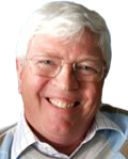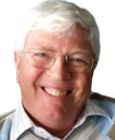Dreaming
Powerful Dreams
Dreams can be life-changing, providing drive, direction and purpose.
Posted May 31, 2013
What is she dreaming? I

What is she dreaming?
I
I had read Freud’s ‘Interpretation of Dreams’, and was studying Jung’s ideas about dreaming, symbols and archetypes at the time; but these and other authorities were not always helpful.
Whenever patients told me about their dreams, it was the mood of the dream, the emotional flavour, that seemed at least as important – and usually easier to make sense of – than the subject matter. For example, the dream might be about being in a perilous situation, but the person experienced no fear, either in the dream, on waking, or later, when describing the dream’s content to me. This seemed hopeful, a sign of emotional healing, and therefore a mark of progress in treatment.

This was no dream!
I recently dreamed that I was playing golf. I walked the length of a short hole to check out the contours, work out where to try and hit the ball, what club to use, how hard to hit it, and so on; but when I played the shot, I whiffed it completely! I swung the club in a perfect arc, but missed the ball entirely, the club-head passing right over the top. ‘What an idiot!’ That was my first emotional reaction – feeling ashamed and foolish – but this was instantly followed and eclipsed by a corrective idea, that I could replay the shot perfectly, and still therefore had an excellent chance to rescue my score. I awoke then, feeling remarkably positive, not only about my golf game, but about more or less everything I am trying to accomplish.
In those days when I was keeping a dream diary, I had several dreams that were, I would say, transformative. They changed my thinking, my disposition in the world, my attitude towards other people, the values I strive to uphold, and consequently my ambitions, words and behaviour. I have written about one of them elsewhere already (in ‘Happiness: The 30 Day Guide’ - see below).
In the dream, I was in a damp, grey, barren landscape of vast horizons under a dark, cloudy sky. I was holding a prospecting hammer. Over my shoulder, there was a collecting sack. In the far distance, I could see just two or three isolated figures, heads bowed like mine, eyes down towards the ground. I was strolling beside a fast-flowing stream, one of several criss-crossing the desolate area. At first I felt lost, unsure of what I was doing or seeking. Soon, however, I stopped, noticing a small, beautiful, teardrop-shaped ingot of purest gold in the mud at my feet. Dislodging it easily with the hammer, I picked it up and placed it in my bag. Immediately, I noticed another of these small but perfect golden sculptures, then another. I knew somehow that I could reap this treasure because I could see it, whereas most others could not. People were away in the towns nearby, enjoying themselves, and had set aside all interest in prospecting – in seeking their true prospects. Their vision for such things had atrophied.

Dreaming of a gold could mean a rich life
In the dream, I recall, I felt split. Obviously I wanted to continue collecting this priceless golden jewellery, but I also wanted to share my secret with the people I cared about. As the dream ended, I was wondering whether to stay and pick up more gold, or go and look for others to tell them to come and join me.
I had this dream almost forty years ago. Happily, the dilemma has resolved itself gradually in that time. I have continued my search for beautiful gold nuggets of wisdom; prospecting for them particularly in the rich but neglected landscapes of philosophy and all the word’s religions. I have searched too in the barer-seeming vistas of medicine and psychiatry, where a materialist economy and a kind of ‘pseudo-science’ rule; where numerical results (or lack of them) are deemed to matter to busy, technologically-minded people more than the spiritual principles on which these disciplines were founded.
Physical health and healing have something to do with making people whole, and this concept of ‘wholeness’ links health directly with both holism and holiness. Until recently, however, these ideas were being consistently disregarded. Similarly, any thought that other parameters of health and healing (mental, social and spiritual) could relate not only to sanity, but also to sanctity, to saintliness, were also routinely being dismissed.
I feel fortunate to have discovered some of these golden truths, and to have been able to share them, by writing, teaching and lecturing, with people wanting to pay even a little attention. This has been a fulfilling experience, and I am grateful for the impetus to embark on and maintain my quest. I am immensely grateful, then, for the one about prospecting, and for many other powerful dreams.
Copyright Larry Culliford
Larry’s books include ‘The Psychology of Spirituality’, ‘Love, Healing & Happiness’ and (as Patrick Whiteside) ‘The Little Book of Happiness’ and ‘Happiness: The 30 Day Guide’ (personally endorsed by HH The Dalai Lama).




